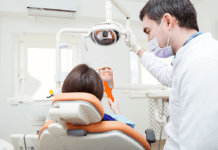Congratulations! You have finally graduated from hygiene school (that you thought would never end), you have passed all of your boards, and have landed your first job in private practice. Before you begin to feel too overwhelmed, here are some things I wish I knew after hygiene school.
Not All Patients Will Be Nice
In hygiene school, patients knew that they were in a learning environment and anticipated an extended period of time in the chair. In a private practice setting, some patients can be nervous/anxious or feel that their time is most precious, which can increase your anxiety in a new environment.
There are also patients who may have been seeing the same hygienist for years and are leery of being treated by someone new, especially by a recent graduate. You may be treating skeptical patients who feel that you are inexperienced. Stay cool, calm, and collected, and your confidence will shine through.
Insurance
Sadly, we live in a world where patients tend to base their choices about treatment around what insurance will and will not cover. Patients will inevitably ask you questions about their insurance.
Ask your office manager or another team member who handles insurance claims to go over a few of the basics with you, including explanations about deductibles and co-pays. You want to answer your patients’ basic questions better. This knowledge will also assist in sequencing a treatment plan to best coordinate the patients’ schedule, as well as allow them to get the most out of their insurance benefits.
Front Desk
Learn the basics of how to answer the phone, schedule an appointment, and understand the dynamics of both the doctor and the hygiene schedule. For example, how much time the doctor requires for a crown prep, filling, root canal, etc. This makes you a vital asset to the dental team, and the front desk will appreciate it.
Time Management
Although time management is discussed in hygiene school, it is definitely a learned skill. As health-care professionals, it is our job to provide the best care possible for our patients. Yet it seems that more responsibilities are placed on our shoulders as we progress.
Multitasking is essential when it comes to time management. Updating the patient’s health history while taking vitals, engaging in small talk, and listening to their chief complaint − all while thinking about what to all needs to be discussed during OHI after the intraoral exam and the perio charting is completed.
If you are lucky, you may work for a doctor who comes to do your exams when he or she is free, rather than waiting for the exam at the end of your hygiene appointment while your next patient has arrived in the waiting room. Soon, time management will become second nature, and you will no longer need to look at the clock to stay on schedule.
The Physical Demands of the Job
A full day of treating patients can really take a toll on your body, especially long term. Ergonomics were not just something else for your instructors to correct you on; it truly is the backbone of our career. Our profession demands a lot from us physically, and it is important to take care of your body.
It is not uncommon for dental hygienists to see a chiropractor, massage therapist, and/or physical therapist on a regular basis. We must take care of ourselves in order to care for our patients. That being said, be sure to stretch your shoulders and back in between patients, practice correct ergonomics, use your loupes (if you have them), and drink plenty of water throughout the day.
The beginning of your dental hygiene career can be a very exciting, stressful, and even an intimidating time, but just try to remember why you chose this profession and let that passion shine through your daily life and into the treatment of your patients.










